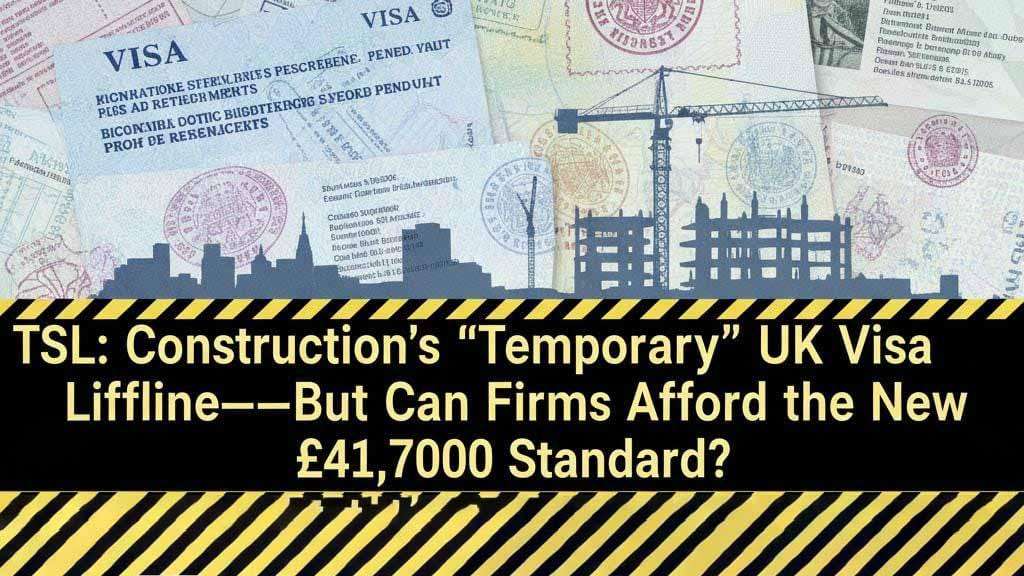The UK construction sector has secured a critical, though highly precarious, pathway for international recruitment, ensuring that key trades remain eligible under the government's radically reformed work visa system. This status is vital for maintaining momentum on national infrastructure and housing targets, but it comes with a ticking clock and significantly increased salary demands.
The sector's lifeline is the new Temporary Shortage List (TSL), introduced in July 2025 as part of an overhaul that saw the general minimum skill threshold for the standard Skilled Worker Visa raised to RQF Level 6 (degree-level). The TSL is a crucial, short-term concession that allows employers to sponsor mid-skilled trades—including essential roles like plumbers, pipe fitters, steel fixers, welders, floorers, and building technicians—which fall below the new RQF 6 standard.
The New Financial Reality and Salary Thresholds
The financial pressure on construction firms is immediate and substantial. For workers in construction roles, meeting the salary threshold is now a major challenge:
- Standard Skilled Worker Visa (RQF 6+ roles like Civil Engineers): Applicants must be paid the higher of the new general minimum of £41,700 per year or 100% of the role's official 'going rate'.
- TSL Roles (Mid-Skilled Trades): Workers on the TSL benefit from a discounted general minimum threshold of £33,400 per year. However, they must still be paid 100% of the specific 'going rate' for their occupation, which can often be higher than the discounted £33,400 figure. For example, a Plumber must be paid their specific going rate, which is currently set around £38,100 per year. All sponsored workers must also be paid at least £17.13 per hour.
This complex salary structure guarantees that recruitment via the visa system is no longer a 'cheap' alternative and forces UK firms to significantly increase pay packets for their sponsored foreign workers.
The TSL: An Easier but Restricted Route
For recruiting core trades (RQF Level 3-5), the Temporary Shortage List offers a comparatively easier entry into the UK visa system than the standard route, as it bypasses the demanding RQF Level 6 skill requirement. However, this ease comes at a severe personal cost to the worker: new applicants in TSL roles are banned from bringing dependants (spouses and children) to the UK. This restriction, mirroring an earlier policy for care workers, makes the route much less attractive for professionals seeking long-term settlement.
Furthermore, the government has been highly selective. While most general construction trades remain, roles such as Rail and Rolling Stock Builders and Repairers and Toolmakers were notably excluded from the TSL, signalling a targeted government drive to reserve specific occupations for the domestic workforce.
Future Uncertainty and the 2026 Deadline
The most urgent concern for the industry is the TSL's expiry date of December 31, 2026. The government has repeatedly stated that the list is a time-limited measure, intended to be a temporary bridge while UK employers ramp up domestic training and implement long-term workforce strategies.
Once the TSL is phased out, all mid-skilled construction roles (RQF 3-5) that are not on the new, highly restricted Immigration Salary List (ISL) will become ineligible for sponsorship. The Migration Advisory Committee (MAC) has been commissioned to conduct a full review of all salary thresholds and the TSL itself, with recommendations expected in late 2025. This sets the stage for potential further salary hikes and an intense period of uncertainty as firms race against the 2026 deadline to secure staff or face a severe, non-negotiable end to their main international recruitment pipeline.








.svg)


_4.jpg)